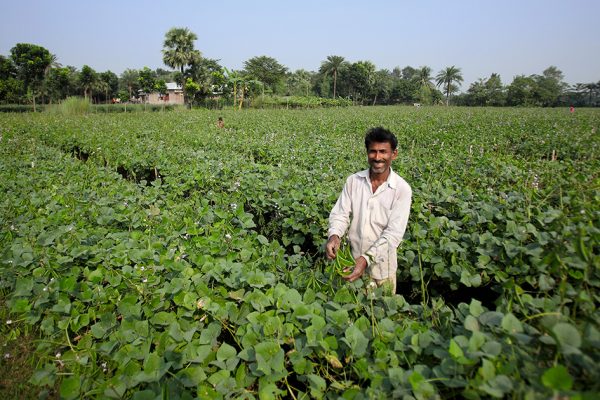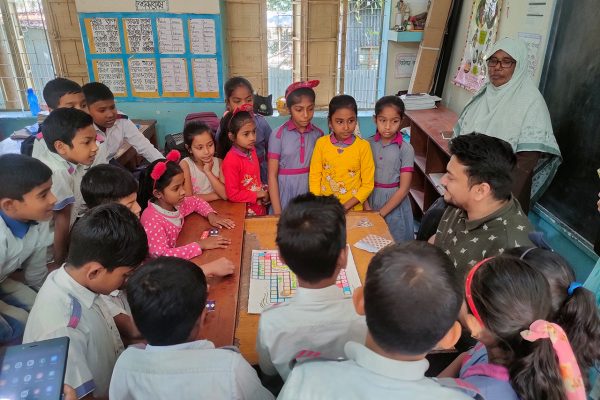Innovative funding mechanism secures lasting change for millions of people in Bangladesh
Reading Time: 2 minutes
On Friday, 8 November,at a public dialogue event hosted by the London School of Economics (LSE), new evidence was presented that the strategic partnership agreement – an agreement signed in June 2011 between BRAC, the UK Department for International Development (DFID) and the Australian Department of Foreign Affairs (DFAT) – has made a significant contribution to enable BRAC to deliver programmes effectively and is an innovation in donor collaboration with a southern NGO.

Sohini Kar Assistant Professor, Department of International Development at the LSE, Mushtaque Chowdhury, Interim Executive Director of BRAC, Scott Dawson, First Assistant Secretary, Australian Department of Foreign Affairs and Trade, Paul Healey, Head of Profession: Social Development, UK Department for International Development (DFID)
On Friday, 8 November,at a public dialogue event hosted by the London School of Economics (LSE), new evidence was presented that the strategic partnership agreement – an agreement signed in June 2011 between BRAC, the UK Department for International Development (DFID) and the Australian Department of Foreign Affairs (DFAT) – has made a significant contribution to enable BRAC to deliver programmes effectively and is an innovation in donor collaboration with a southern NGO.
The strategic partnership agreement committed to a five-year long collaboration with BRAC and offers a good practice model for thinking about international development partnerships. The partnership was made possible by a strong pre-existing relationship of trust between the partners. All of the partners reported their satisfaction around key areas of the partnership including financial transparency, shared values and strategic aims, communication and collaborative decision making.
Through the agreement, funding now emphasises shared goals rather than donor-driven requirements and therefore enables faster progress towards the achievement of development goals contributing substantially to a range of benefits including:
- Providing ‘value for money’ for all partners and reducing transaction costs
- Enhancing BRAC’s programme effectiveness by sharing best practice
- Enhancing strategic planning and longer term thinking about action against poverty, helping BRAC to tackle the root causes
- Fostering innovation and rolling out pilots – such as BRAC’s graduating programme for people experiencing ultra-poverty
- An integrated approach across sectors such health and education
- Extending services to poor, isolated, rural communities
- A focus on results rather than activities
- Strategic dialogue and engagement with the Bangladeshi government so that development programmes are complimentary and supported by policy changes
Bangladesh has already met several targets of the millennium development goals according to the UNDP, including reducing the poverty gap ratio, and has had a steady decline in the incidence of poverty of 2.5 per cent per year since 1992. Most significant gains have been made in the education and health sectors, with Bangladesh attaining gender parity at primary and secondary schools, and halving infant mortality rates.
BRAC’s dedicated work has contributed to Bangladesh’s progress. The parameters of the partnership agreement have helped BRAC improve delivery of essential services, helping even more families to escape extreme poverty.
“Australia has been a proud supporter of BRAC for many years but the 2011 strategic partnership agreement has taken our collaboration to a new level of innovation and effectiveness in delivering better development outcomes for the people of Bangladesh.” Scott Dawson, First Assistant Secretary, Australian Department of Foreign Affairs and Trade
“This agreement represents a new paradigm shift in terms of partnership between the South and the North. The more work like this that can be done the better for people living in poverty.” Mushtaque Chowdhury, Executive Director of BRAC
Katie Allen is the communications and marketing manager at BRAC UK.





